Synopsis
Why does the U.S. have an Electoral College? How do congressional investigations work? What does the minority whip actually do? Civics 101 is the podcast refresher course on the basics of how our democracy works.
Episodes
-
Episode 96: The Federal Election Commission
02/02/2018 Duration: 17minOn today's episode: How does the government make sure elections are conducted fairly? Who's keeping track of all the money donated to candidates? Is the Federal Election Commission still relevant in the era of dark money and Super PACs? Joining us on the show is Bob Biersack, senior fellow at the Center for Responsive Politics.
-
Episode 95: How We Vote
30/01/2018 Duration: 18minThe secret ballot... the decorum of the polling place... the sanctity of the voting booth... these are the trappings of Election Day in the U.S., and they feel as old as time when you pull that curtain closed to (silently) voice your vote. But we haven't always voted this way. In fact, there was a time when Election Day was characterized by violence, drunken revelry and beans in a box. Jill Lepore is a professor of American History at Harvard University, and staff writer at the New Yorker. She joined us to shed some light on the (occasionally dark) history of voting in the U.S., and to explain why things got so quiet.
-
Episode 94: Super PACs
26/01/2018 Duration: 20minOn this episode: What is a super PAC, and for that matter, what's a PAC? What are the rules they have to follow? Does spending money in an election count as free speech? We address campaign finance and the murky world of dark money with Dante Scala, political science professor at the University of New Hampshire.
-
Episode 93: Welfare
23/01/2018 Duration: 17minWelfare is one of the nation's most contentious and least understood social programs. What began as support for single mothers and their children has throughout history been a target for stigmatization and budget cuts. Premilla Nadasen is author ofWelfare in The United States and she joined us to better understand the history and potential future of the program.
-
BONUS: Government Shutdown (Rebroadcast)
20/01/2018 Duration: 11minIt happened. The government shutdown. But what does that mean? Civics 101 revisits an episode from September, 2017. On this episode: What actually shuts down during a government shutdown? Do federal workers still get paid? Who decides what government jobs are essential, and non-essential? What can past government shutdowns tell us about the process? Our guest is Charles Tiefer, law professor at the University of Baltimore.
-
Episode 92: Lightning Round
19/01/2018 Duration: 20minToday, we celebrate our one-year anniversary with the first annual Civics 101 lightning round, in which we answer all the little questions you sent us that we never got around to answering in a full episode. Joining us to test his civics knowledge against your queries is Dave Alcox, social studies teacher at Milford High School and friend of the podcast. Plus, stick around after the show for an exclusive taste of the secret, long-form Civics 101 theme song.
-
Episode 91: The Two-Party System
16/01/2018 Duration: 22minThere are lots of political parties in the United States - so how come we pretty much only hear about two? What is the 'two-party system' and why does it hold sway? Is it an intentional part of governmental design, or is this simply how history shook out? In this episode, we'll explore those questions, hear from an original member of a third party, and dig into something called Duverger's Law - which explains why two parties tend to dominate in American politics. Our guest is Civics 101 Senior Producer Taylor Quimby. This episode also features Hans Noel, political scientist at Georgetown University, and Lenny Brody, a member of the steering comittee at The Justice Party.
-
Episode 90: The Surgeon General
12/01/2018 Duration: 17minOn today's episode: Who is the Surgeon General and what powers do they have? When a public health crisis strikes, what can the Surgeon General do? What influence did Surgeons General have on issues like smoking and HIV/AIDS? We sit down with Fitzhugh Mullan, professor of Health Policy and Management at George Washington University.
-
Episode 89: Post-Presidency
09/01/2018 Duration: 17minThe President of the United States is considered one of the most powerful people in the world. So what happens after the Commander-in-Chief becomes a civilian again? How does a former president shape his legacy after he leaves office? To find out, we asked Mark Updegrove, historian and author of Second Acts: Presidential Lives and Legacies After the White House.
-
Episode 88: Department of Homeland Security
05/01/2018 Duration: 18minOn this week's show: What does the Department of Homeland Security do? How has it evolved in the past decade and a half? Can it keep up with the changing nature of terrorism? Our guide today is Ron Nixon, the New York Times homeland security correspondent.
-
Episode 87: The National Anthem
02/01/2018 Duration: 13minOn this week's episode: Who composed our national anthem? Why do we play it so often? And what's the significance of protesting during the anthem? Our guest is Marc Leepson, author of Flag: An American Biography.
-
Episode 86: Camp David
29/12/2017 Duration: 15minEvery president since Franklin Delano Roosevelt has spent time at Camp David. But why was the presidential retreat built in the first place, and what happens there? To find out, we spoke to Retired Rear Admiral Michael Giorgione, former commanding officer of Camp David and author of Inside Camp David: The Private World of the Presidential Retreat.
-
Episode 85: Lobbying [Rebroadcast]
26/12/2017 Duration: 16minWhen discussing the political power of special interest groups, you can't help but talk about lobbying. But what does a lobbyist actually do? We know they hand over checks (lots of them), but how do they spend the rest of their time? What separates legal lobbying from bribery? And how is the food at all those Washington D.C. fundraising breakfasts, anyway? Jimmy Williams, former lobbyist and current host of Decode D.C., spills the beans. This is a rebroadcast of an episode that originally aired in July 2017.
-
Episode 84: FEMA
22/12/2017 Duration: 17minThe Federal Emergency Management Agency was established in order to plan and respond to nuclear war. These days, they're tasked with showing up after all sorts of disasters strike. But what kind of resources does FEMA have to respond to storms, earthquakes, fires and floods? And where is the organization when we feel we need them most... in the hours and days after disaster strikes? Our guest today is Garrett Graff, a journalist and historian who wrote The Secret History of FEMA for Wired Magazine.
-
Episode 83: The Bureau of Alcohol, Tobacco, Firearms and Explosives
19/12/2017 Duration: 14minWhat do alcohol, tobacco, firearms, and explosives all have in common? They fall under the umbrella of a single federal bureau - commonly referred to as the ATF. On this episode, what led to the creation of the ATF? What kind of power do ATF agents have? What exactly is a legal explosive? Our guest is Katie Tinto, assistant professor at the University of California, Irvine School of Law.
-
Episode 82: U.S. Allies
15/12/2017 Duration: 18minOn today's episode: What does it mean to be an ally of the United States, who decides which countries we should be allies with, and how do our alliances influence the role of the United States around the world? To clear up these questions, we spoke with Melissa Waters, a law professor at Washington University in St. Louis.
-
Episode 81: HUD
12/12/2017 Duration: 17minIn the 1960’s there was a growing awareness of urban plight and poverty, which was generally referred to as the "Urban Crisis" - the economic abandonment of large U.S. cities. As part of President Lyndon Johnson's "Great Society" push came a cabinet department designed in part to stabilize housing and urban areas: the Department of Housing and Urban Development, or HUD. How has HUD evolved since those early days? What programs does the department oversee? And what's its future today? Guiding us through the young history of HUD is Alec MacGillis, politics and government reporter with ProPublica.
-
Episode 80: The National Archives
08/12/2017 Duration: 18minThe National Archives and Records Administration is the forever home of the Declaration of Independence and the U.S. Constitution, but what else do they keep in their vaults? Can just anybody do research at the Archives? And what role does NARA play in the national election? To find out, we spoke to Jessie Kratz, the historian at the National Archives.
-
Episode 79: The U.S. Flag Code
05/12/2017 Duration: 15minIn this episode: What is the U.S. Flag Code? Who created it, and why? Is it enforceable? When did the American flag start getting used in advertising? What are the differences between the U.S. Flag Code and flag protection laws? Has the flag always been a symbol of patriotism? Our guest is Marc Leepson, author of Flag: An American Biography.
-
Episode 78: Congressional Committees
01/12/2017 Duration: 12minIn a given week, Congress might vote on everything from international diplomacy to wildlife conservation to internet regulation. How do individual members of Congress become experts on each of these subjects? The answer is: they don't. Congress divides its work load among committees. This week, how does the committee system work, which committees wield the most influence, and how do members of Congress jockey for committee seats? We speak with Garrison Nelson, a professor of political science at the University of Vermont.

Join Now
- Unlimited access to all content on the platform.
- More than 30 thousand titles, including audiobooks, ebooks, podcasts, series and documentaries.
- Narration of audiobooks by professionals, including actors, announcers and even the authors themselves.



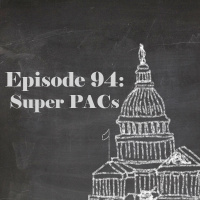
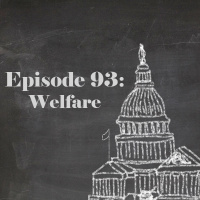

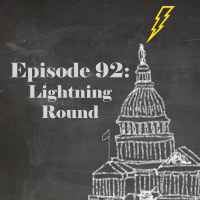

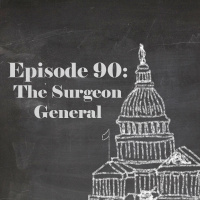
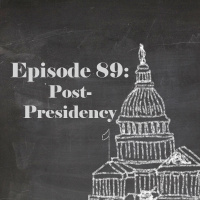
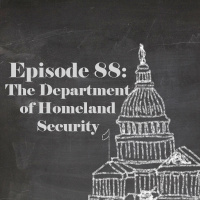
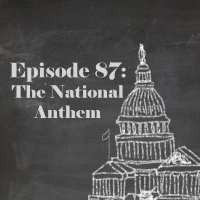
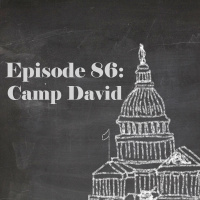
![Episode 85: Lobbying [Rebroadcast]](http://media3.ubook.com/catalog/book-cover-image/287506/200x200/AC5E83C1-7F86-31B5-B526-FA98AADDB6D7.jpg)
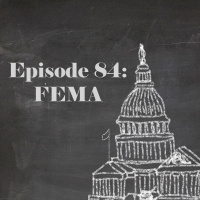

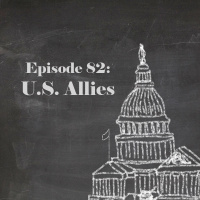
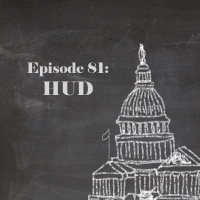
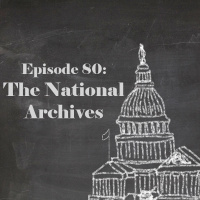
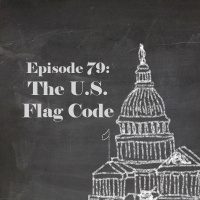
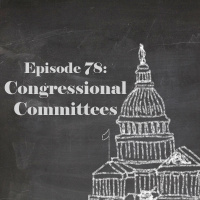










 Jamaica
Jamaica





